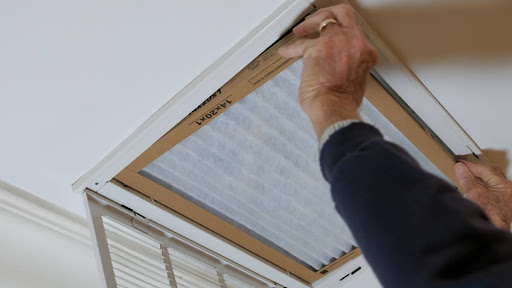Summer is the perfect time to enjoy the warmth of the sun and relax indoors to escape the heat. However, all the fun can quickly turn into discomfort if your air conditioning system isn’t functioning correctly. Do you want to prevent any AC-related hiccups during the hot summer months? If so, it’s crucial to keep your unit in top-notch condition.
In this blog, we’ll walk you through a comprehensive summer AC maintenance checklist to help you prepare your AC for the sunny season.
Why Summer AC Maintenance Is Important
Regular maintenance not only enhances your AC system’s efficiency but also prolongs its lifespan, reduces energy costs, and improves indoor air quality. Neglecting routine maintenance can lead to significant buildup of dirt and debris, clogged filters, and other issues that can impede airflow and reduce the system’s ability to cool your home effectively. By following a summer AC maintenance checklist, you can avoid expensive repairs and enjoy a cool, comfortable indoor environment all summer long.
Air Conditioner Maintenance Tips for Summer
Getting your air conditioning system ready for summer involves a few key steps. If you’re unsure where to start, consider following this summer AC maintenance checklist. By being proactive, you can make sure your unit is ready to tackle the heat.
1. Inspect and Clean the Air Filters
One of the simplest yet most important tasks in your summer AC maintenance checklist is checking and cleaning the air filters. Dirty air filters can reduce the airflow efficiency and strain your HVAC system, leading to higher energy bills and decreased indoor air quality. Replace or clean the filters every one to three months to maintain optimal performance.
2. Check the Thermostat Settings
Check that your thermostat is set to your desired temperature and functioning correctly. Consider upgrading to a programmable thermostat or smart thermostat to help manage your cooling system more efficiently. These devices can adjust the temperature automatically based on your schedule, saving energy and reducing operating costs.
3. Clean the Outdoor Unit
The outdoor AC unit, also known as the condenser unit, is exposed to the elements and can accumulate dirt, leaves, and debris. Use a garden hose to gently clean the fins and remove any obstructions around the unit. Make sure the area around the outdoor unit is clear of plants and debris to allow proper airflow.
4. Inspect Electrical Components
Check all electrical connections and wiring for any signs of wear or loose connections. Faulty electrical components can cause your air conditioning system to malfunction or even pose a safety hazard. If you’re not comfortable handling electrical repairs, it’s best to call a professional HVAC technician to perform this task.
5. Clean the Evaporator Coil
The evaporator coil, located inside the indoor unit, can become dirty over time, reducing the system’s ability to cool the air effectively. A dirty coil can also lead to higher energy bills and decreased cooling efficiency. Gently clean the evaporator coil with a soft brush or cloth to remove any dirt and dust.
6. Check Refrigerant Levels
Proper refrigerant levels are essential for your AC unit to cool your home efficiently. Low refrigerant levels can indicate a leak, which requires immediate attention from a professional HVAC technician. Have your refrigerant levels checked and topped up if necessary to maintain optimal performance.
7. Clear the Condensate Drain Line
A clogged condensate drain line can potentially cause water to back up and damage your air conditioning system. Regularly inspect the drain line for any blockages and use a wet/dry vacuum to remove any debris. Keeping the drain line clear will prevent water damage and improve the system’s efficiency.
8. Inspect and Clean Air Vents
Make sure all air vents in your home are clean and free from obstructions. Dust and debris can accumulate in the vents, impeding airflow and reducing the system’s efficiency. Vacuum the vents regularly and verify that furniture or other objects aren’t blocking the airflow.
How to Prepare Your AC for Summer
Beyond the primary maintenance tasks, here are a few more air conditioner maintenance tips to keep your system running smoothly:
Schedule a Professional HVAC Maintenance Tune-Up
While there are many tasks you can perform yourself, scheduling a professional HVAC maintenance tune-up is vital. A qualified technician can spot and address any potential issues before they become major problems. This service typically includes checking the refrigerant levels, inspecting the electrical components, and cleaning the evaporator and condenser coils.
Test the System’s Efficiency
Before the summer heat sets in, it’s a good idea to test your air conditioning system. Turn on the AC unit and monitor the temperature inside your home. If the system takes too long to reach the desired temperature or doesn’t cool evenly, it may need servicing.
Seal and Insulate Ductwork
Leaky or poorly insulated air ducts can result in substantial energy loss and increased energy bills. Inspect your home’s ductwork for any visible leaks and seal them. Also, consider adding more insulation to your ducts to improve energy efficiency.
Check the Airflow
Proper airflow is essential for efficient cooling. Check all air vents and registers to confirm they’re open and unobstructed. If you notice any areas in your home that are consistently warmer than others, it may indicate an airflow issue that needs to be addressed.
Maintain Proper Indoor Humidity Levels
High indoor humidity levels can make your home feel warmer and strain your air conditioning system. You can try using a dehumidifier to maintain optimal indoor humidity levels and improve the comfort of your living space.
Monitor Energy Consumption
Keep an eye on your energy bills throughout the summer to identify any unusual spikes in energy consumption. An increase in energy costs can indicate that your air conditioning system is not operating efficiently and may need maintenance or repairs.
Replace an Old or Inefficient AC Unit
If your air conditioning system is more than ten to 15 years old, it may be time to consider replacing it with a more energy-efficient model. Newer AC models are designed to operate more efficiently, saving you money on energy costs and providing better cooling performance.
The Benefits of Regular AC Maintenance
Routine maintenance of your air conditioning system offers several significant benefits:
- Improved Energy Efficiency: Well-maintained AC units function more efficiently. This can help reduce your energy consumption and lower your energy bills.
- Extended Lifespan: Routine maintenance helps prevent major breakdowns and extends the lifespan of your air conditioning system.
- Better Indoor Air Quality: Clean air filters and components improve indoor air quality by reducing dust, allergens, and pollutants.
- Enhanced Comfort: A well-maintained AC unit provides consistent and reliable cooling.
- Cost Savings: Preventative maintenance can identify and address issues before they snowball into expensive repairs, saving you time and money in the long run.
Schedule AC Maintenance With Quality Heating & Cooling!
Don’t let a malfunctioning air conditioning system ruin your summer fun. By following this summer AC maintenance checklist and incorporating these air conditioner maintenance tips, you can rest easy, knowing that your home’s cooling system will survive the heat.
For professional air conditioning service in Canton, OH, including HVAC maintenance, trust the experts at Quality Heating & Cooling. Our technicians are dedicated to keeping your cooling system running smoothly and efficiently.
Ready to schedule your summer AC maintenance? Contact Quality Heating & Cooling today to book your appointment and enjoy a cool, comfortable home all summer long. We can assist with all of your needs, from annual tune-ups to air conditioning replacement in Canton, OH, and the surrounding areas!

